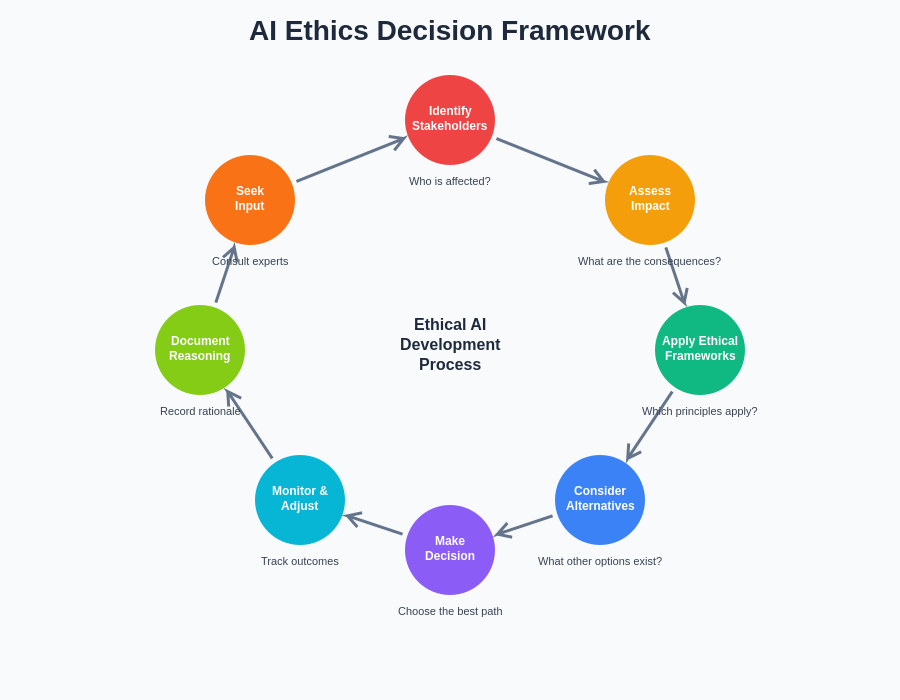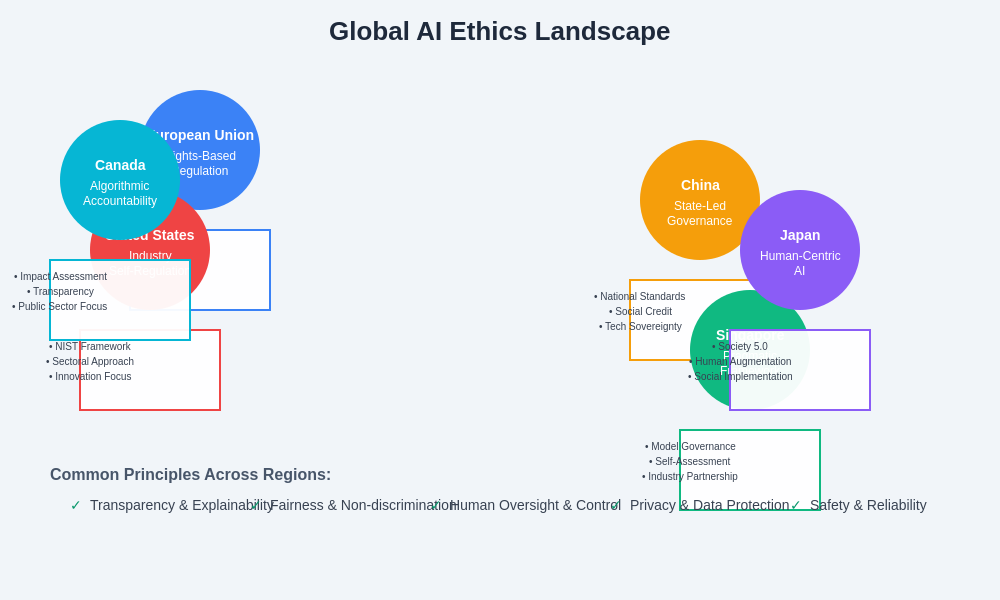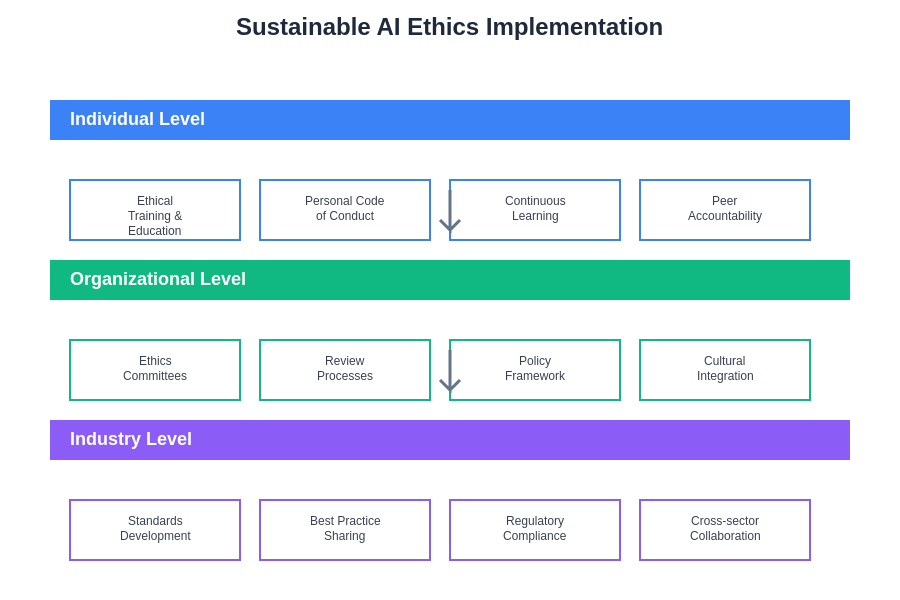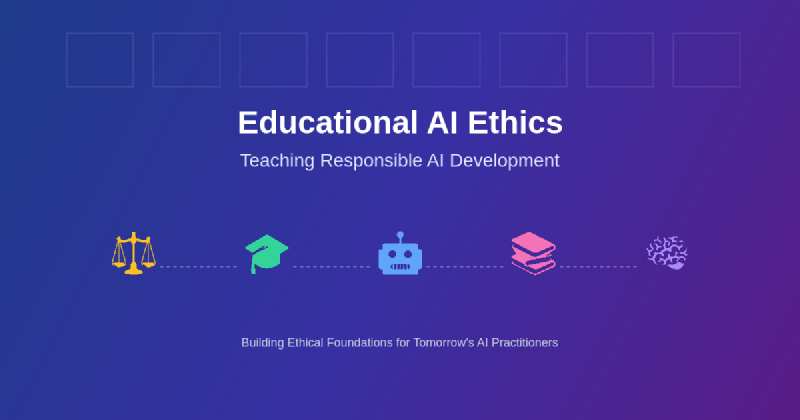The rapid advancement of artificial intelligence technologies has created an unprecedented need for comprehensive ethical education in AI development, as the decisions made by today’s students and emerging professionals will shape the technological landscape for generations to come. Educational institutions worldwide are grappling with the challenge of integrating ethical considerations into technical curricula while maintaining the rigor and innovation necessary for advancing AI capabilities. This comprehensive approach to teaching responsible AI development requires a fundamental reimagining of how we prepare future technologists to navigate the complex moral landscape of artificial intelligence.
Explore the latest developments in AI education trends to understand how institutions are adapting their curricula to address the growing importance of ethical AI development. The integration of ethics into AI education represents more than just an academic exercise; it constitutes a critical foundation for ensuring that future AI systems serve humanity’s best interests while minimizing potential harms and unintended consequences.
Foundations of Ethical AI Education
The establishment of robust ethical foundations in AI education requires a multidisciplinary approach that combines technical expertise with philosophical rigor, social awareness, and practical application. Educational programs must move beyond superficial discussions of AI ethics to provide students with deep understanding of the moral implications inherent in algorithmic decision-making, data collection practices, and system deployment strategies. This foundational knowledge encompasses not only the technical aspects of bias detection and mitigation but also the broader societal implications of AI systems on employment, privacy, democracy, and human autonomy.
Effective ethical AI education begins with helping students understand that technology is never neutral and that every design decision carries moral weight. This understanding must be cultivated through careful examination of case studies, historical examples of technological impact, and hands-on experience with ethical decision-making frameworks. Students need to develop the critical thinking skills necessary to identify potential ethical issues before they manifest in deployed systems, as well as the practical skills required to implement solutions that balance competing interests and values.
The curriculum must also address the global nature of AI development and deployment, ensuring that students understand how cultural differences, regulatory frameworks, and economic disparities affect the ethical landscape of AI systems. This international perspective is crucial for preparing students to work in an increasingly interconnected world where AI systems cross borders and affect diverse populations with varying values and expectations.
Integrating Ethics Across Technical Curricula
The integration of ethical considerations into technical AI curricula requires careful balance between maintaining academic rigor and providing meaningful exposure to moral reasoning and social responsibility. Rather than relegating ethics to standalone courses that may be perceived as peripheral to technical training, effective programs weave ethical considerations throughout the entire curriculum, ensuring that students encounter moral questions at every stage of their technical education.
Programming courses can incorporate discussions of algorithmic fairness, requiring students to consider the social implications of their code design choices and implementation strategies. Machine learning courses can address issues of bias in training data, fairness in model outputs, and the responsibility of practitioners to understand and mitigate discriminatory outcomes. Data science curricula can explore privacy protection, consent mechanisms, and the ethical use of personal information in research and commercial applications.
Enhance your understanding of responsible AI with advanced tools like Claude that prioritize safety and beneficial outcomes in AI system design and deployment. This integration ensures that ethical thinking becomes a natural part of the technical development process rather than an afterthought or external constraint.
Project-based learning provides particularly valuable opportunities for integrating ethical considerations into technical education. Students working on AI projects can be required to conduct ethical impact assessments, consider stakeholder perspectives, and develop mitigation strategies for potential negative consequences. These practical experiences help students understand that ethical AI development is not merely theoretical but requires concrete skills and ongoing attention throughout the development lifecycle.
Developing Critical Thinking and Moral Reasoning
The cultivation of critical thinking and moral reasoning skills represents a cornerstone of effective AI ethics education, requiring students to move beyond simple rule-following to develop sophisticated capabilities for analyzing complex ethical dilemmas and competing values. This development must encompass both theoretical knowledge of ethical frameworks and practical experience applying these frameworks to real-world scenarios involving AI systems and their impacts on society.
Students need exposure to multiple ethical traditions and philosophical approaches, including consequentialist frameworks that focus on outcomes, deontological approaches that emphasize duties and rights, virtue ethics that considers character and moral development, and care ethics that prioritizes relationships and responsibilities. This diverse foundation enables students to approach ethical dilemmas from multiple perspectives and develop nuanced understanding of how different values and priorities can lead to different conclusions about appropriate action.
The development of moral reasoning skills must also include training in stakeholder analysis, helping students identify all parties affected by AI systems and understand how different groups may experience benefits and harms differently. This stakeholder-centered approach encourages students to move beyond narrow technical considerations to consider the broader social ecology in which AI systems operate and the diverse perspectives that must be balanced in ethical decision-making.
Case Studies and Real-World Applications
The use of case studies and real-world applications provides essential concrete grounding for abstract ethical principles, helping students understand how theoretical concepts translate into practical challenges and decision-making scenarios. Effective case studies draw from historical examples of AI system failures, controversial deployments, and successful implementations that demonstrate both positive and negative outcomes of different ethical approaches.
Students benefit from analyzing cases such as algorithmic bias in hiring systems, privacy violations in social media platforms, autonomous vehicle decision-making dilemmas, and the use of AI in criminal justice systems. These cases provide opportunities to examine how technical decisions interact with social values, regulatory requirements, and stakeholder interests to produce complex ethical landscapes that require careful navigation.

The structured approach to ethical decision-making in AI development requires systematic evaluation of multiple factors including stakeholder impact, technical feasibility, regulatory compliance, and long-term consequences. This framework provides students with practical tools for navigating complex ethical terrain while maintaining focus on beneficial outcomes.
Contemporary case studies should also address emerging challenges in AI ethics, including the governance of large language models, the ethical implications of generative AI systems, and the challenges of maintaining human agency in increasingly automated environments. These current examples help students understand that AI ethics is a rapidly evolving field requiring ongoing learning and adaptation rather than a fixed set of rules or principles.
Collaborative Learning and Diverse Perspectives
The complexity of AI ethics demands collaborative learning approaches that bring together diverse perspectives, experiences, and expertise to enrich student understanding and challenge assumptions about technology and society. Effective programs create opportunities for students from different disciplines, cultural backgrounds, and life experiences to work together on ethical challenges, recognizing that the diversity of viewpoints strengthens ethical reasoning and leads to more robust solutions.
Interdisciplinary collaboration proves particularly valuable in AI ethics education, as the challenges facing AI systems require input from computer science, philosophy, sociology, psychology, law, economics, and other fields. Students benefit from working with peers who bring different analytical frameworks, cultural perspectives, and domain expertise to bear on complex ethical questions. This collaboration helps students develop appreciation for the multifaceted nature of AI ethics and the importance of seeking diverse input in ethical decision-making.
Expand your research capabilities with advanced AI tools like Perplexity to explore diverse perspectives on AI ethics from global sources and emerging research. The platform provides access to comprehensive information that supports informed ethical reasoning and decision-making in AI development contexts.
Community engagement also plays a crucial role in developing well-rounded ethical perspectives, as students need opportunities to interact with individuals and groups who may be affected by AI systems but lack technical backgrounds. These interactions help students understand how AI systems impact real people’s lives and develop empathy for those who may experience both benefits and harms from technological advancement.
Assessment and Evaluation Strategies
The assessment of ethical learning in AI education requires innovative approaches that move beyond traditional testing methods to evaluate students’ ability to reason through complex moral dilemmas, apply ethical frameworks to novel situations, and demonstrate commitment to responsible practice. Effective assessment strategies must capture both intellectual understanding of ethical concepts and practical ability to implement ethical decision-making in real-world contexts.
Portfolio-based assessment provides valuable opportunities for students to document their ethical learning journey, including reflection papers on case studies, analysis of their own project decisions, and evidence of growth in moral reasoning capabilities. These portfolios can include artifacts such as ethical impact assessments, stakeholder analysis documents, and reflective essays that demonstrate deepening understanding of ethical considerations in AI development.
Peer assessment and collaborative evaluation methods can also contribute to effective ethical assessment, as students often learn effectively from evaluating and discussing each other’s ethical reasoning processes. Group projects that require collective ethical decision-making provide opportunities to assess students’ ability to navigate disagreement, build consensus, and maintain ethical standards in collaborative environments.
Industry Partnerships and Professional Development
The preparation of students for ethical practice in professional AI development requires strong partnerships between educational institutions and industry organizations committed to responsible AI development. These partnerships provide students with exposure to real-world ethical challenges, mentorship from experienced practitioners, and opportunities to understand how ethical considerations translate into business practices and organizational policies.
Internship programs and cooperative education experiences offer particularly valuable opportunities for students to apply their ethical learning in professional contexts while receiving guidance from mentors who can help them navigate the complexities of implementing ethical principles in commercial and organizational environments. These experiences help students understand the practical constraints and opportunities that shape ethical decision-making in professional settings.
Professional development opportunities, including workshops, conferences, and certification programs, provide ongoing learning experiences that help students and practitioners stay current with evolving ethical standards and best practices in AI development. These opportunities also foster professional networks that support continued ethical learning and practice throughout career development.
Global Perspectives and Cultural Considerations
The development of ethical AI systems requires deep understanding of global perspectives and cultural considerations, as AI technologies increasingly operate across cultural boundaries and affect diverse populations with varying values, expectations, and social structures. Educational programs must prepare students to navigate this cultural complexity while maintaining commitment to universal principles of human dignity and welfare.
Cross-cultural competency in AI ethics involves understanding how different societies conceptualize privacy, autonomy, fairness, and other fundamental values that shape ethical expectations for AI systems. Students need exposure to diverse cultural perspectives on technology, social relationships, and moral responsibility to develop the sensitivity necessary for designing and deploying AI systems that respect cultural differences while promoting beneficial outcomes.

The international landscape of AI ethics governance reflects diverse cultural values, regulatory approaches, and societal priorities. Understanding this diversity helps students develop culturally sensitive approaches to AI development that respect local values while promoting universal principles of human welfare and dignity.
International collaboration and exchange programs provide valuable opportunities for students to gain firsthand experience with different cultural approaches to AI ethics and technology governance. These experiences help students develop the global perspective necessary for responsible AI development in an interconnected world.
Regulatory Frameworks and Compliance
Understanding regulatory frameworks and compliance requirements represents a crucial component of comprehensive AI ethics education, as students must be prepared to navigate the complex and evolving landscape of AI governance while maintaining commitment to ethical principles that may extend beyond legal requirements. This understanding encompasses both current regulatory requirements and emerging governance trends that will shape the future of AI development and deployment.
Students need familiarity with major regulatory initiatives such as the European Union’s AI Act, emerging legislation in various jurisdictions, and industry-specific regulations that affect AI development in sectors such as healthcare, finance, and transportation. This regulatory literacy helps students understand the legal context for ethical decision-making while recognizing that compliance with regulations represents a minimum standard rather than comprehensive ethical practice.
The relationship between ethics and regulation requires careful examination, as students must understand both the ways in which regulations can support ethical practice and the limitations of regulatory approaches in addressing complex moral questions. This understanding helps students develop judgment about when legal compliance is sufficient and when additional ethical considerations demand higher standards of practice.
Future Challenges and Emerging Technologies
The rapid pace of AI development requires educational programs to prepare students for ethical challenges that may not yet be fully apparent while maintaining grounding in fundamental principles that can guide reasoning about novel situations. This forward-looking approach must balance preparation for specific emerging technologies with development of flexible ethical reasoning capabilities that can adapt to unforeseen developments.
Emerging technologies such as artificial general intelligence, quantum computing applications to AI, brain-computer interfaces, and advanced robotics present novel ethical challenges that require careful consideration and proactive ethical reasoning. Students need frameworks for approaching these emerging challenges while understanding the limitations of current ethical knowledge and the need for ongoing learning and adaptation.
The democratization of AI development through improved tools and platforms also presents new challenges for ethical education, as individuals and organizations without formal AI training increasingly develop and deploy AI systems. This trend requires educational programs to consider how ethical knowledge and practice can be disseminated beyond traditional academic and professional contexts.
Building Sustainable Ethical Practices
The development of sustainable ethical practices in AI requires long-term commitment to continuous learning, reflection, and improvement rather than one-time training or certification. Educational programs must prepare students for lifelong engagement with ethical questions while providing them with tools and resources for maintaining ethical awareness and practice throughout their careers.
Sustainable ethical practice requires integration of ethical considerations into organizational culture, development processes, and decision-making structures rather than relying on individual moral commitment alone. Students need understanding of how to advocate for ethical practices within organizations, build systems that support ethical decision-making, and maintain ethical standards under pressure.
The cultivation of ethical leadership capabilities represents another crucial element of sustainable practice, as students must be prepared to influence others, promote ethical standards, and navigate conflicts between ethical principles and other organizational priorities. This leadership development requires both technical competency and moral courage to advocate for responsible practices even when such advocacy involves personal or professional risk.

The implementation of sustainable AI ethics requires systematic integration across organizational levels, from individual decision-making through institutional policies to industry-wide standards. This comprehensive approach ensures that ethical considerations remain central to AI development practices over time.
Measuring Impact and Continuous Improvement
The assessment of educational effectiveness in AI ethics requires sophisticated measurement approaches that capture both immediate learning outcomes and long-term behavioral changes in professional practice. Educational institutions must develop metrics and evaluation methods that demonstrate the real-world impact of ethical education while identifying opportunities for continuous improvement in pedagogical approaches and curriculum design.
Longitudinal studies tracking graduates’ professional practices, ethical decision-making patterns, and contributions to responsible AI development provide valuable insights into the long-term effectiveness of educational programs. These studies can help institutions understand which pedagogical approaches produce lasting impact and which areas require additional attention or different instructional strategies.
Alumni networks and professional associations can play important roles in supporting ongoing ethical development while providing feedback to educational institutions about the practical relevance and effectiveness of their programs. These relationships create opportunities for continuous improvement in educational approaches while supporting graduates’ continued ethical development throughout their careers.
The field of AI ethics education itself requires ongoing research and development to identify best practices, effective pedagogical approaches, and emerging challenges that require curricular attention. This research contributes to the broader goal of ensuring that AI development remains aligned with human values and social benefit as the technology continues to evolve and expand its influence on society.
Educational institutions have the responsibility and opportunity to shape the future of AI development through their preparation of the next generation of AI practitioners. The comprehensive integration of ethical considerations into AI education represents not merely an academic requirement but a crucial investment in ensuring that artificial intelligence serves humanity’s best interests while respecting human dignity, promoting social justice, and protecting fundamental rights and freedoms for all people.
Disclaimer
This article is for educational and informational purposes only and does not constitute professional advice on AI ethics, educational policy, or regulatory compliance. The views expressed are based on current understanding of AI ethics education and may evolve as the field continues to develop. Educational institutions and individuals should conduct their own research and consult with appropriate experts when developing or implementing AI ethics education programs. The effectiveness of educational approaches may vary depending on institutional context, student populations, and specific learning objectives.
